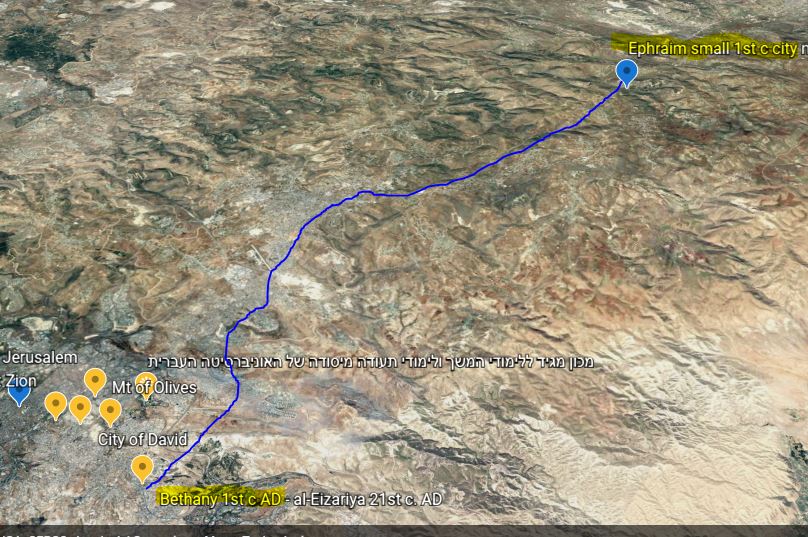Apologetics
You may know of a Christian ministry or witness whose stated purpose is to defend God.
RZIM.org and others focus on apologetics witness Jesus Christ to unsaved souls, comparing Christianity to other religions — even to atheism. Some have come to Christ through these ministries by learning the logic and love of the Lord God calling sinners to Christ.
Yet think of the irony of it:
If any have NO NEED of defense, it would be ALMIGHTY GOD.
“I and the Father are one.”
Christ Jesus
(Apologetics is not really defending God, but answering those who question God - unbelievers and those who refuse God's love - apostates.)
Defending God and Christ Jesus to unbelievers is not my purpose, which is to grow your faith IF you are a Christian follower of the Lord.
As I have stated recently, talkofJesus.com is not focused on unbelievers, but on followers of Christ who want to talk of Jesus in the context of scripture.
Continuing in the Gospel of John we move on from the betrayal of Jesus by Judas to the defense of Jesus by Peter in the Garden of Gethsemane.
John 18:
8 Jesus answered, “I told you that I am He; so if you seek Me, let these go their way,” …
10 Simon Peter then, having a sword, drew it and struck the high priest’s slave, and cut off his right ear; and the slave’s name was Malchus.
11 So Jesus said to Peter, “Put the sword into the sheath; the cup which the Father has given Me, shall I not drink it?”
Who is Malchus?
Malchus is δοῦλος doulos of the High Priest, perhaps better translated in the KJV and other translations as ‘servant.’
In fact, Judas had left the upper room in Jerusalem to betray Jesus to the ruling council headed by the High Priest Caiaphas.
The chief priests and the whole Sanhedrin were looking for testimony against Jesus to put him to death, but they could not find any.
Mark 14:55 CSB – of the Sanhedrin, religious rulers of Jerusalem
Malchus’ name means ‘king,’ from a Hebrew origin pointing to the tribe of Benjamin. (The priests of course were Levites as prescribed by Law.)
How ironic that Peter should defend Jesus, King of the Jews, by lopping off the ear of this man Malchus, whose name meant king.
More about Malchus
Malchus would have been ordered to lead these armed police officers of the Sanhedrin, guided by Judas, to bring this popular Messiah back to them for trial.
John has already told us:
But one of them, Caiaphas, who was high priest that year, said to them, “You know nothing at all, nor do you take into account that it is expedient for you that one man die for the people, and that the whole nation not perish.”
John 11:49-50 NASB –
Malchus would have been a personal servant to Caiaphas, an assistant with some authority assumed by his role in serving the High Priest. The Temple police held similar authority. And add to that a few Roman soldiers in the entourage lead by Malchus whose role was to see that the Jews did not get out of hand in this area governed by Pilate.

Judas is, no doubt, among the men sent to bring Jesus to the justice of the Sanhedrin, but Malchus, servant of the High Priest is the man leading them into Gethsemane under the cover of night.
Luke’s account
Of course John, Matthew and Peter would have been among the awakened Apostles present in Gethsemane. Peter, who would later lead the church until his own crucifixion, responded by cutting off Malchus’ ear just after Judas’ kiss of betrayal of Jesus.
Brash as always, Peter will defend the Lord – an ironic gesture defending the One who could instantly have angels present to ‘smite’ the lot of them – IF, that is, defeating men of dust was Jesus’ will.
Of course, it wasn’t.
Luke 22: KJV
And while he yet spake, behold a multitude, and he that was called Judas, one of the twelve, went before them, and drew near unto Jesus to kiss him.
But Jesus said unto him,
Judas, betrayest thou the Son of man with a kiss?
When they which were about him saw what would follow, they said unto him,
(The Eleven have now drawn near to Jesus…)
Lord, shall we smite with the sword?
And one of them smote the servant of the high priest, and cut off his right ear.
Details of witness from John:
- As soon then as he [Jesus] had said unto them, I am he, they went backward, and fell to the ground. John 18:6
- A second time Jesus answered them (probably their leader): I have told you that I am he: if therefore ye seek me, let these go their way John 18:8
- Simon Peter drew the sword… John 18:10 & 11
- The name of the High Priest’s slave (servant) is Malchus. John 18:10
Luke’s detail of a miracle
But Jesus answered and said, “Permit even this.”
And He [Christ Jesus]
touched his {Malchus’} ear
and healed him {the servant of Caiaphas, High Priest of the Jews}.
Luke 22:51 NKJV
Jesus heals the ear struck by Peter’s sword! His enemy, head of an armed force sent by the Jews to apprehend their Messiah Jesus to be tried and convicted covertly under the cover of night. The Lord just betrayed by one of His Disciples shows mercy to the men Judas led to apprehend Him.
Defending Jesus
John is about to tell us more of the saga of Peter on this night in which our Lord was betrayed. In fact, as you know, away from Jesus Peter could no longer defend Jesus even by admitting to be a follower.
If that how it is for you, beloved believer in Christ Jesus?
- How do you defend Jesus when confronted by the multitudes?
- Is your defense of God an aggressive agenda of man, a political position of proving that Jesus wants what you do?
- (For that was what Judas expected of his King Jesus.)
- Do you praise the Lord in the church building, yet deny your God on trial in the rise and fall of blame by the darkness of this world’s accusations?
- Even Peter struggled with that, dear friend, but the risen Lord Jesus restored Him again and again.
How ironic that we would defend the LORD God, that we want to defend Christ Jesus who came into the world to save us.

In these last days, which began under the darkness of a night in Gethsemane, God has defeated sin and death for us
— by the grace of the Lord’s love
for those He has chosen.
We believe in the One Son the Father sent to suffer for our sins, the Messiah Jesus.
For Christ Jesus our Lord, we make no apologies to a world without ears to hear the Good News — a world directed by Satan for just a time more.
Jesus IS LORD!
To be continued...





